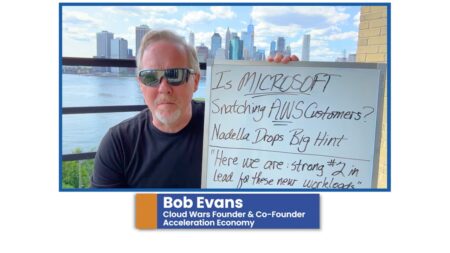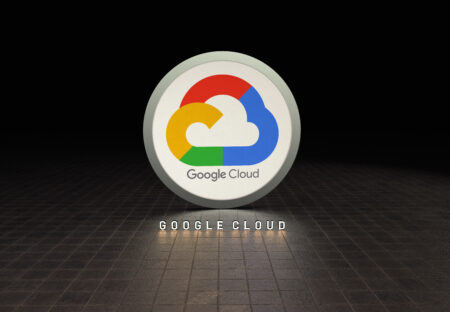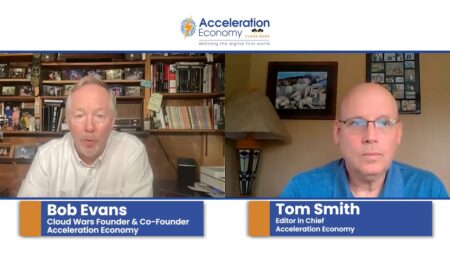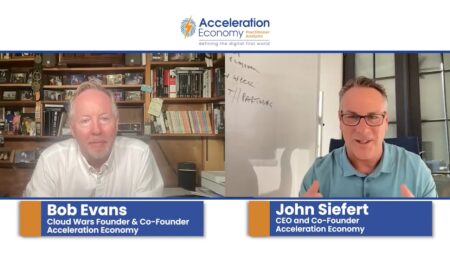An update on the Cloud Confidence Index, with Amazon, Google, and SAP leading the index higher.
Google Cloud
The Cloud Confidence Index uses market caps of top 10 cloud companies as a proxy for business leaders’ confidence in their growth, reflecting customer demand and technology trends. The index is up slightly.
Oracle maintains its position as the world’s hottest major cloud vendor with 54% growth in Q2, followed by Google Cloud at 28% and ServiceNow at 25%.
The four fastest growing cloud vendors’ financial results indicate an upturn in customer spending and preparation for the generative AI revolution.
Despite AWS’s impressive scale and achievements, its rivals are gaining ground in other software-centered segments of the cloud. AWS may face challenges in the Cloud Wars going forward.
Amazon Web Services (AWS) experienced a decline in its growth rate for the seventh straight quarter amid fierce competition from Microsoft, Google Cloud, and Oracle.
Microsoft’s strong fiscal Q4 performance can be attributed to its generative AI portfolio and the defection of some AWS customers to Azure.
Microsoft is experiencing significant growth in the cloud infrastructure market, particularly in AI workloads, potentially taking market share from AWS, which has seen a decline in its growth rate.
AI capabilities, generative AI customer count, and operating profits are just three of the reasons that Google Cloud replaced AWS on the Cloud Wars Top 10 list.
Google Cloud’s latest quarterly results and strong growth validate its elevation to #2 on the Cloud Wars Top 10, while they also highlight its strength in supporting AI customers.
Approaching the release of the Q2 financial results of Amazon, AWS’ growth rate decline stands out relative to Cloud Wars Top 10 adversaries.
Google Cloud and Microsoft’s impressive Q2 growth rates suggest that AWS needs to turn up the heat to keep up in the Cloud Wars.
Google Cloud has announced changes to its pricing model, which includes BigQuery editions. An autoscaling feature matches capacity in real-time to the demands of individual workloads
Mercedes-Benz, Ulta, and Toyota are co-creating with leading vendors to leverage AI for extraordinary customer experiences.
Bob revisits the Cloud Wars Top 10 rankings as the latest growth rates of Oracle might move it up the ranks past Amazon’s AWS.
In the Acceleration Economy Cloud Wars Top 10 course, discover how companies, including Celonis, achieve Cloud Wars Horizon designation.
Get a preview of our Cloud Wars Top 10 course on how buying committees and C-level executives can use the cloud ranking to support purchase decisions.
Get a preview of our Cloud Wars Top 10 course, which helps buying committees and C-level execs support purchase decisions by understanding each company’s innovations and differentiators.
Google Cloud proves to be a leader in the generative AI revolution, expanding on partnerships with SAP, Salesforce, Accenture, and other global system integrators.
Bob Evans reviews Google Cloud’s involvement in the generative AI revolution. The company is extending partnerships with SAP, Salesforce, and top systems integrators.





















